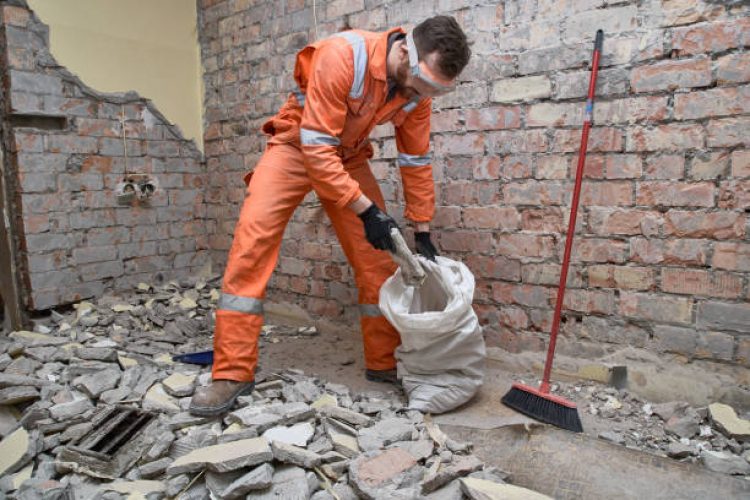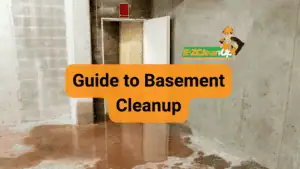Renovating your home or commercial property is an exciting journey that can transform spaces and increase property value. However, before you can build something new, you often need to tear down what exists. This is where licensed demolition contractors become essential partners in ensuring your renovation project starts on the right foundation – literally and figuratively.
The demolition phase of any renovation project is far more complex than simply “tearing things down.” It requires specialized knowledge, proper equipment, regulatory compliance, and most importantly, a licensed professional who understands the intricate safety requirements that govern this critical phase of construction work.
Why Licensing Matters in Demolition Work
Demolition contractor companies need to obtain the proper licenses in the states in which they operate, and depending on your location, state, county, or local municipality, you may need to obtain a demolition contractor license. This licensing requirement isn’t bureaucratic red tape – it’s a fundamental safety measure designed to protect workers, property owners, and the general public from the significant risks associated with demolition work.
Demolition work involves many of the hazards associated with construction. However, demolition involves additional hazards due to unknown factors which makes demolition work particularly dangerous. Licensed contractors have demonstrated their competence through training, testing, and experience requirements that ensure they can safely navigate these complex challenges.
The licensing process typically requires contractors to meet several stringent criteria. You must identify at least one manager who ensures safe practices on demolition sites and compliance with the approved site safety plan, and you must identify at least one supervisor responsible for developing site safety plans. This ensures that every licensed demolition project has qualified professionals overseeing both planning and execution phases.
Understanding OSHA Standards and Safety Requirements
The Occupational Safety and Health Administration (OSHA) has established comprehensive standards specifically for demolition work. Demolition work involves many of the hazards associated with construction; therefore, all of 29 CFR Part 1926 – Construction Standards apply at a demolition site. For this reason, OSHA created the Subpart T – Demolition standards specifically for these operations.
Licensed demolition contractors are required to understand and implement these OSHA standards, which cover everything from preliminary planning to final site cleanup. Proper planning is essential to ensure a demolition operation is conducted with no accidents or injuries. This includes, but is not limited to: An engineering survey completed by a competent person before any demolition work takes place.
Critical OSHA Requirements for Safe Demolition
The OSHA standards mandate several crucial preparatory steps that licensed contractors must follow:
Engineering Surveys: Before any demolition work begins, a competent person must conduct a thorough engineering survey. This should include the condition of the structure and the possibility of an unplanned collapse. Locating, securing, and/or relocating any nearby utilities is also essential.
Utility Management: All electric, gas, water, steam, sewer, and other service lines shall be shut off, capped, or otherwise controlled, outside the building line before demolition work is started. In each case, any utility company which is involved shall be notified in advance.
Hazardous Materials Assessment: It shall also be determined if any type of hazardous chemicals, gases, explosives, flammable materials, or similarly dangerous substances have been used in any pipes, tanks, or other equipment on the property. When the presence of any such substances is apparent or suspected, testing and purging shall be performed and the hazard eliminated before demolition is started.
The Critical Role of Hazardous Materials Management
One of the most significant advantages of working with licensed demolition contractors is their expertise in handling hazardous materials commonly found in older buildings. These materials pose serious health risks if not properly managed during the demolition process.
Asbestos Management and Abatement
Asbestos-containing materials were widely used in construction through much of the 20th century. An asbestos survey is required before any renovation or demolition activity begins. Asbestos surveys must be performed by state-licensed asbestos inspectors.
Licensed demolition contractors understand the regulatory framework surrounding asbestos removal. Notifications are also required for essentially all demolition projects, regardless of whether asbestos containing materials are present in the structure. A notification is required for the demolition of most buildings under the asbestos NESHAP even when no asbestos is involved.
The complexity of asbestos regulations means that even when asbestos isn’t detected, proper procedures must still be followed. The purpose of the requirement to report even when no asbestos is found is to ensure that facilities are inspected for asbestos and that removal is performed consistent with the standard. Building materials containing asbestos continued to be sold for years after their manufacture was banned. There are NO exemptions based upon the date of construction nor age of the structure.
Lead-Based Paint Considerations
Lead-based paint is another significant concern in renovation projects, particularly in buildings constructed before 1978. Under the Lead Renovation, Repair, and Painting Rule, contractors who renovate or partially demolish pre-1978 residential buildings must be lead-safe certified by EPA and use lead-safe practices.
The health implications of improper lead management are severe. The most common way that lead gets into the body is through dust. The process of demolishing older housing generates dust that includes lead from interior and exterior lead-based paint. Demolition workers inhale this lead dust and also track the lead dust to their homes and communities.
Licensed contractors implement specific protocols to minimize lead exposure. Lead-safe work practices minimize lead-based paint dust and debris generated during demolition activities. At a minimum, we suggest that surfaces should be wetted when possible to control the spread of leaded dust into the air.
Permitting and Regulatory Compliance
The permit process for demolition work is complex and varies significantly by jurisdiction. Understanding these requirements is crucial for ensuring legal compliance and avoiding costly delays or fines.
When Demolition Permits Are Required
These are the main 3 situations when property owners will need a demolition permit: If a primary structure/structures are going to be razed or removed from the lot; If any accessory structures with mechanical systems, utility systems, hazardous materials, or a basement-type foundation will be razed or removed from the lot; If a building/structure that is having an additional renovation requires a substantial amount of demolition.
The permit application process typically involves multiple steps and documentation requirements. In general, obtaining a demolition permit is a process that includes these 5 steps: Prepare all the necessary documents – these documents will also include a site plan. Site plan will clearly show the structure that you are planning to remove and its location. Complete the application – the form is available online.
Additional Permitting Considerations
Beyond basic demolition permits, renovation projects often require multiple approvals. Major renovations require multiple permits, including demolition, electrical, plumbing, and HVAC permits. Licensed contractors understand these interconnected requirements and can help coordinate the various permits needed for a complete renovation project.
The importance of proper permitting cannot be overstated. According to a study by the U.S. Department of Housing and Urban Development (HUD), 2023, titled “Building Code Compliance Trends,” over 65% of renovation delays result from permit issues or failed inspections, emphasizing the importance of thorough planning.
The Benefits of Professional Demolition Management Plans
Licensed demolition contractors don’t just show up and start tearing things down. They develop comprehensive management plans that address every aspect of the demolition process.
Safety-First Approach
One of the most critical aspects of any demolition project is ensuring the safety of all workers and the surrounding area. Demolition work involves significant risks due to the use of heavy machinery, the instability of structures, and the presence of hazardous materials like asbestos. A demolition plan addresses these risks by outlining specific safety measures and emergency procedures.
Professional demolition plans include specific safety protocols that go beyond basic requirements. Include specific safety measures, such as equipment checks, protective gear requirements, and emergency procedures. A safety-first approach is essential to prevent accidents and keep workers and the public safe.
Legal and Environmental Compliance
Every demolition project must adhere to a wide range of local, national, and environmental regulations. A well-drafted demolition plan ensures that all legal requirements are met, including obtaining necessary permits, following local building codes, and complying with environmental regulations. This compliance helps avoid costly fines or project delays caused by legal issues.
Waste Management and Environmental Responsibility
Professional demolition contractors implement comprehensive waste management strategies. Outline strategies for handling demolition waste, from recyclable materials to hazardous substances. Make sure that all waste is disposed of according to local regulations to prevent environmental damage.
Contractor Selection and Oversight
Choosing the right licensed demolition contractor is crucial for renovation success. Property owners should understand key factors in contractor selection and the importance of ongoing oversight.
Key Selection Criteria
When selecting a demolition contractor, several factors should be carefully evaluated. Consider the level of experience, training and the certifications or licenses held by the contractor/consultant and their employees. This includes verifying that contractors have the appropriate licenses for the specific type of work being performed.
Check on past performance with agencies such as the local pollution control agency, the agency responsible for worker safety, the agency that licenses or accredits contractors and workers (if applicable for the work being done). It may also be worthwhile to ask if the firm has been warned or cited for any health and safety or environmental issues or violations or if they have ever taken any other action against the contractor or consultant for those types of issues.
The Importance of Ongoing Oversight
Even with licensed contractors, proper oversight remains essential. When a local government hires contractors to provide services, it is still liable for violations of environmental regulations. Oversight is important because it protects the public and the environment, it ensures that services paid for are completed, and that the work complies with regulatory requirements.
Responsible parties should oversee how contractors are working with the local community to prevent problems and address concerns. Community involvement is an important part in a project’s success. The community will look to local government or other responsible parties to be accountable for all aspects of a large-scale residential demolition project.
Training and Certification Requirements
Licensed demolition contractors must meet stringent training and certification requirements that ensure they can safely handle the complex challenges of demolition work.
OSHA Training Requirements
The supervisor must maintain a current OSHA 30 safety training certificate. For this person, you must submit: Proof of completion of an approved OSHA 30 safety training course, taken within five years of application date. This training requirement ensures that supervisory personnel have comprehensive knowledge of construction safety standards.
The OSHA 30-hour training program is specifically designed for construction industry supervisors and covers essential topics including hazard recognition, accident prevention, and regulatory compliance. Licensed contractors must ensure their key personnel maintain current certifications and participate in ongoing education to stay current with evolving safety standards and regulations.
Specialized Certifications for Hazardous Materials
Beyond general construction safety, licensed demolition contractors must obtain specialized certifications for handling hazardous materials. In the event your company handles demolition sites that contain hazardous materials, there are often specific certifications you need to obtain for the type of work you will conduct, as well as for your equipment, staff, and self.
These specialized certifications ensure that contractors have the knowledge and skills necessary to safely handle asbestos, lead-based paint, and other hazardous materials commonly encountered during demolition work.
Economic Benefits and Cost Considerations
While hiring licensed demolition contractors may involve higher upfront costs, the long-term benefits often far outweigh the initial investment.
Avoiding Costly Mistakes and Delays
Unlicensed or improperly managed demolition can result in significant additional costs. Hiring a contractor who isn’t licensed could lead to fines, an unsafe work environment, or removal of your project without warning or compensation. Licensed contractors help avoid these costly scenarios through proper planning, regulatory compliance, and professional execution.
Insurance and Liability Protection
Because of the nature of the demolition business, companies also need to obtain insurance to protect themselves against loss in the event of an accident. Licensed contractors carry appropriate insurance coverage that protects both the contractor and the property owner from potential liabilities associated with demolition work.
Long-term Value Creation
Professional demolition services support the overall success of renovation projects. Benefits of gut renovation include stronger foundations, energy efficiency, increased property value, and modernized living spaces. Reinforced walls and updated electrical systems improve safety, while smart home technology and energy-efficient materials lower operational costs. According to a report by the U.S. Department of Energy titled “Energy-Efficient Home Upgrades,” published in 2021, gut renovations reduce energy consumption by 40% when incorporating modern insulation, windows, and HVAC systems.
Conclusion: Building Success from the Ground Up
Licensed demolition contractors serve as the foundation for successful renovation projects by ensuring that the critical preparation phase is conducted safely, legally, and professionally. Their expertise in regulatory compliance, hazardous materials management, and safety protocols protects both property owners and the broader community from the significant risks associated with demolition work.
The investment in licensed demolition services pays dividends throughout the entire renovation process. From avoiding costly delays and regulatory violations to ensuring proper handling of hazardous materials, licensed contractors bring invaluable expertise that supports both immediate project goals and long-term property value.
As renovation projects become increasingly complex and regulatory requirements continue to evolve, the role of licensed demolition contractors becomes even more critical. They serve not just as service providers, but as essential partners in creating safer, more valuable properties that meet modern standards for construction, safety, and environmental responsibility.
Whether you’re planning a simple interior renovation or a comprehensive property transformation, starting with licensed demolition professionals ensures your project begins on solid ground – setting the stage for renovation success that will benefit property owners, workers, and communities for years to come.













